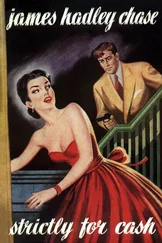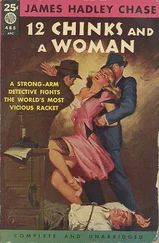Miss Learning was one of the last, a tall figure in a grey linen dress and white gloves, her head bare, a white cardigan slung carelessly around her shoulders against the chill of the chapel. She was obviously alone and unwatched and her careful pretence of surprise at recognizing Cordelia was probably an unnecessary precaution. They passed out of the chapel together.
The gravel path outside the doorway was thronged with people. A little party of Japanese, festooned with cameras and accessories, added their high staccato jabber to the muted Sunday afternoon chat. From here the silver stream of the Cam was invisible but the truncated bodies of punters glided against the far bank like puppets in a show, raising their arms above the pole and turning to thrust it backwards as if participating in some ritual dance. The great lawn lay unshadowed in the sun, a quintessence of greenness staining the scented air. A frail and elderly Don in gown and mortarboard was limping across the grass; the sleeves of his gown caught a stray breeze and billowed out so that he looked like a winged and monstrous crow struggling to rise. Miss Learning said, as if Cordelia had asked for an explanation:
'He's a Fellow. The sacred turf is, therefore, uncontaminated by his feet.'
They walked in silence by Gibbs Building. Cordelia wondered when Miss Learning would speak. When she did, her first question was unexpected.
'Do you think you'll make a success of it?'
Sensing Cordelia's surprise, she added impatiently:
'The Detective Agency. Do you think you'll be able to cope?'
'I shall have to try. It's the only job I know.'
She had no intention of justifying to Miss Learning her affection and loyalty to Bernie; she would have had some difficulty in explaining it to herself.
'Your overheads are too high.'
It was a pronouncement made with all the authority of a verdict.
'Do you mean the office and the Mini?' asked Cordelia.
'Yes. In your job I don't see how one person in the field can bring in sufficient income to cover expenses. You can't be sitting in the office taking orders and typing letters and be out solving cases at the same time. On the other hand, I don't suppose you can afford help.'
'Not yet. I've been thinking that I might rent a telephone answering service. That will take care of the orders although, of course, clients much prefer to come to the office and discuss their case. If I can only make enough in expenses just to live, then any fees can cover the overheads.'
'If there are any fees.'
There seemed nothing to say to this and they walked on in silence for a few seconds. Then Miss Learning said:
'There'll be the expenses from this case anyway. That at least should help towards your fine for illegal possession of the gun. I've put the matter in the hands of my solicitors. You should be getting a cheque fairly soon.'
'I don't want to take any money for this case.'
'I can understand that. As you pointed out to Ronald, it falls under your fair deal clause. Strictly speaking you aren't entitled to any. All the same, I think it would look less suspicious if you took your expenses. Would thirty pounds strike you as reasonable?'
'Perfectly, thank you.'
They had reached the corner of the lawn and had turned to walk towards King's Bridge. Miss Learning said:
'I shall have to be grateful to you for the rest of my life. That for me is an unaccustomed humility and I'm not sure that I like it.'
'Then don't feel it. I was thinking of Mark, not of you.'
'I thought you might have acted in the service of justice or some such abstraction.'
'I wasn't thinking about any abstraction. I was thinking about a person.'
. They had reached the bridge now and leaned over it side by side to look down into the bright water. The paths leading up to the bridge were, for a few minutes, empty of people. Miss Learning said:
'Pregnancy isn't difficult to fake, you know. It only needs a loose corset and judicious stuffing. It's humiliating for the woman of course, almost indecent if she happens to be barren. But it isn't difficult, particularly if she isn't closely watched. Evelyn wasn't. She had always been a shy, self-contained woman. People expected her to be excessively modest about her pregnancy. Garforth House wasn't filled with friends and relations swapping horror stories about the antenatal clinic and patting her stomach. We had to get rid of that tedious fool Nanny Pilbeam, of course. Ronald regarded her departure as one of the subsidiary benefits of the pseudo pregnancy. He was tired of being spoken to as if he were still Ronnie Callender, the bright grammar school boy from Harrogate.' Cordelia said:
'Mrs Goddard told me that Mark had a great look of his mother.'
'She would. She was sentimental as well as stupid.'
Cordelia did not speak. After a few moments' silence Miss Learning went on:
'I discovered that I was carrying Ronald's child at about the same time as a London specialist confirmed what the three of us already guessed, that Evelyn was most unlikely to conceive. I wanted to have the baby; Ronald desperately wanted a son; Evelyn's father was obsessional about his need for a grandson and was willing to part with half a million to prove it. It was all so easy. I resigned from my teaching job and went off to the safe anonymity of London and Evelyn told her father she was pregnant at last. Neither Ronald nor I had any conscience about defrauding George Bottley. He was an arrogant, brutal, self-satisfied fool who couldn't imagine how the world would continue without his issue to supervise it. He even subsidized his own deceit. The cheques for Evelyn began to arrive, each with a note imploring her to look after her health, to consult the best London doctors, to rest, to take a holiday in the sun. She had always loved Italy, and Italy became part of the plan. The three of us would meet in London every two months and fly together to Pisa. Ronald would rent a small villa outside Florence and, once there, I became Mrs Callender and Evelyn became me. We had only daily servants and there was no need for them to look at our passports. They got used to our visits and so did the local doctor who was called in to supervise my health. The locals thought it flattering that the English lady should be so fond of Italy that she came back month after month, so close to her confinement.'
Cordelia asked:
'But how could she do it, how could she bear to be there with you in the house, watching you with her husbands-knowing that you were going to have his child?'
'She did it because she loved Ronald and couldn't bear to lose him. She hadn't been much success as a woman. If she lost her husband, what else was there for her? She couldn't have gone back to her father. Besides, we had a bribe for her. She was to have the child. If she refused, then Ronald would leave her and seek a divorce to marry me.'
'I would rather have left him and gone off to scrub doorsteps.'
'Not everyone has a talent for scrubbing doorsteps and not everyone has your capacity for moral indignation. Evelyn was religious. She was, therefore, practised in self-deception. She convinced herself that what we were doing was best for the child.'
'And her father? Didn't he ever suspect?'
'He despised her for her piety. He always had. Psychologically he could hardly indulge that dislike and at the same time think her capable of deceit. Besides, he desperately needed that grandchild. It wouldn't have entered his mind that the child might not be hers. And he had a doctor's report. After our third visit to Italy we told Dr Sartori that Mrs Callender's father was concerned about her care. At our request he wrote a reassuring medical report on the progress of the pregnancy. We went to Florence together a fortnight before the baby was due and stayed there until Mark arrived. Luckily he was a day or two before time. We'd had the foresight to put back the expected date of delivery so that it genuinely looked as if Evelyn had been caught unexpectedly by a premature birth. Dr Sartori did what was necessary with perfect competence and the three of us came home with the baby and a birth certificate in the right name.'
Читать дальше












